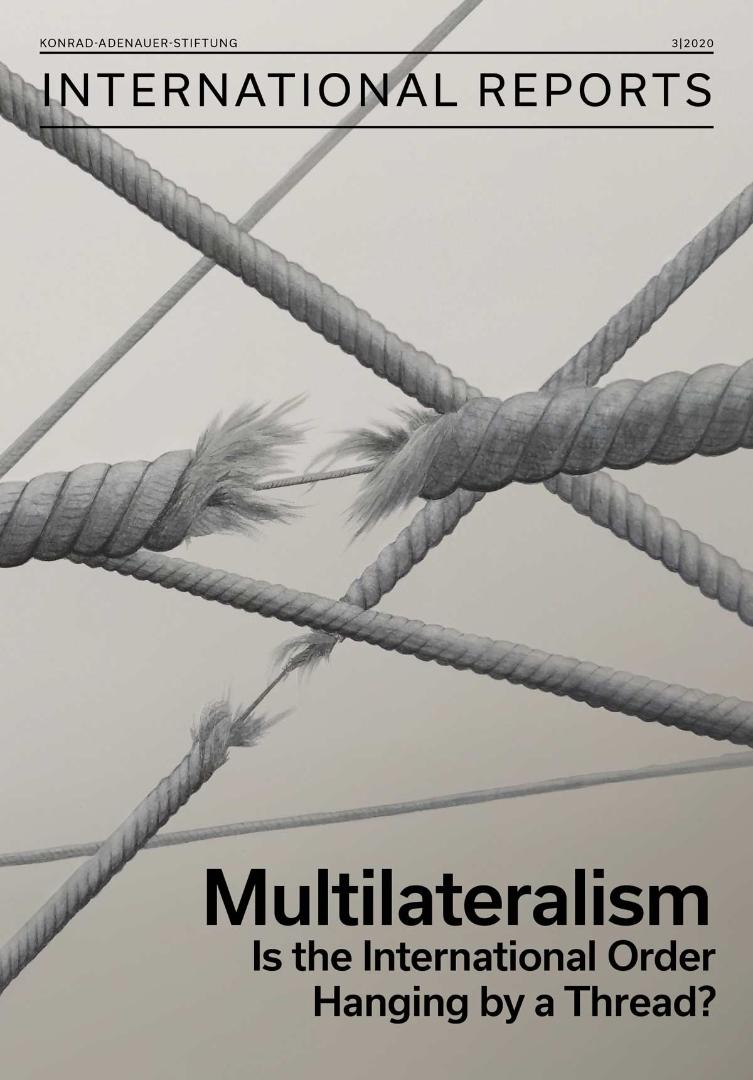75 years ago, the Charter of the United Nations was signed in San Francisco. It laid the foundation for a new international order based on the ideal of institutionalised cooperation. Cooperation instead of confrontation – that was the lesson learnt from the catastrophes of two world wars. How is international cooperation doing today? Is there any truth in all the gloom, all the voices bemoaning the end of the multilateral world order? Why is it important, despite all difficulties and weaknesses, to continue to defend this policy model?
View table of contentsAbout this series
International Reports (IR) is the Konrad-Adenauer-Stiftung's periodical on international politics. It offers political analyses by our experts in Berlin and from more than 100 offices across all regions of the world. Contributions by named authors do not necessarily reflect the opinions of the editorial team.
Order details
Our periodical on international politics is published four times a year. We provide you with background information on what is happening in the world – free of charge. Use our registration form and with just a few clicks you can read the digital version of our political journal or order the print version in German or English.
Editor
Dr. Gerhard Wahlers
ISBN
0177-7521
Benjamin Gaul

Head of the Department International Reports and Communication






